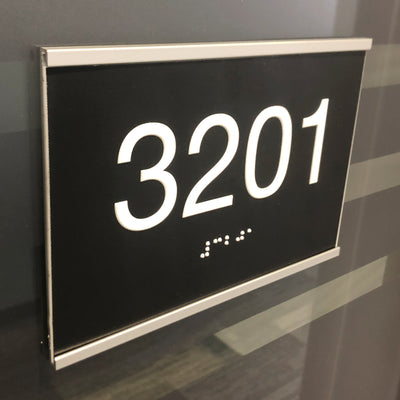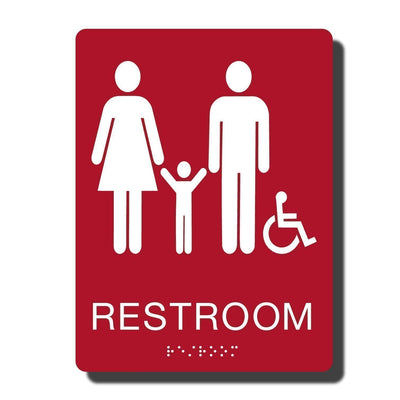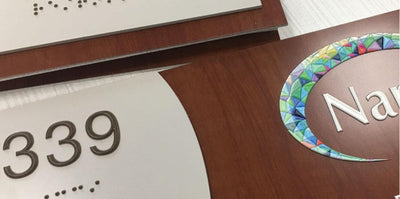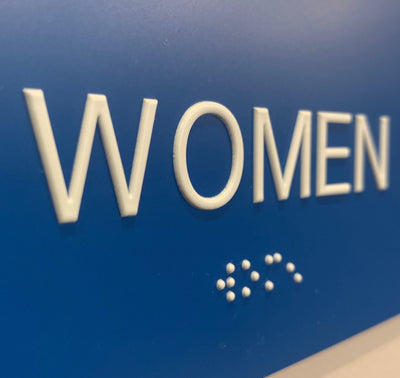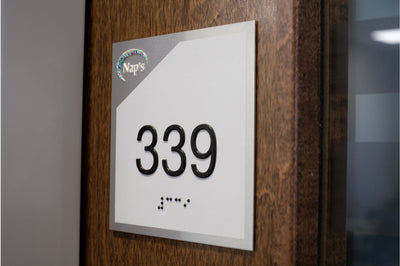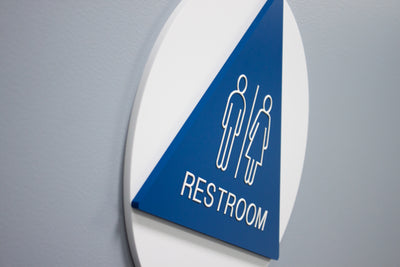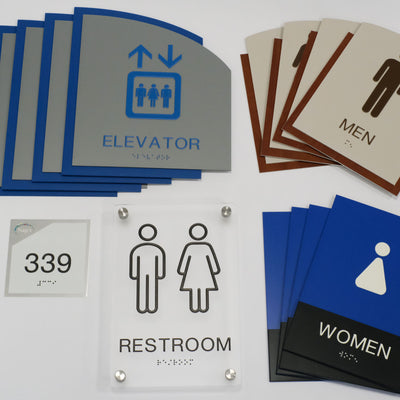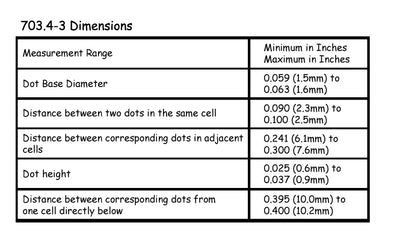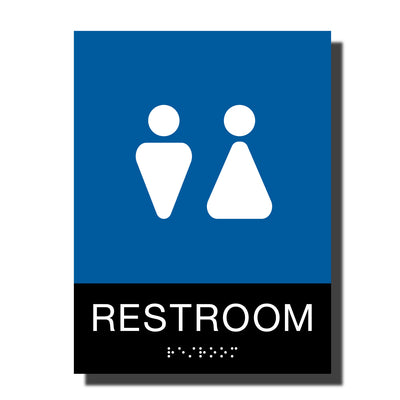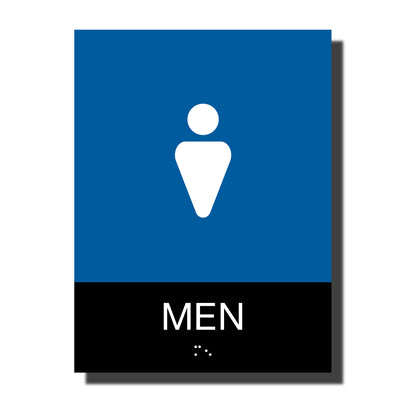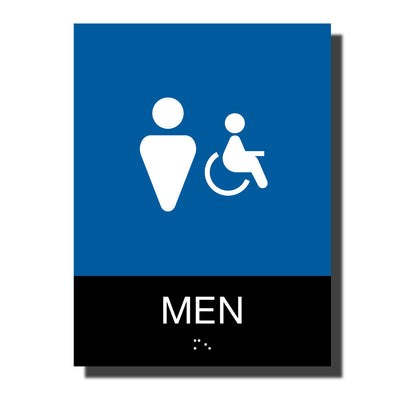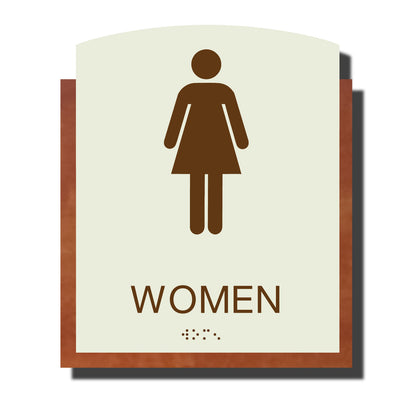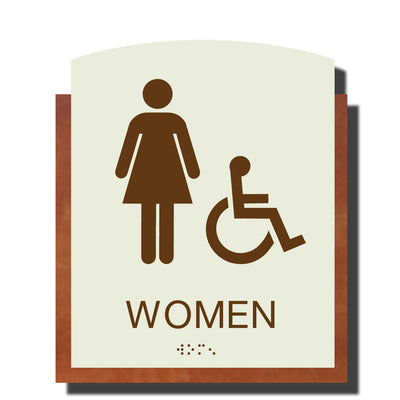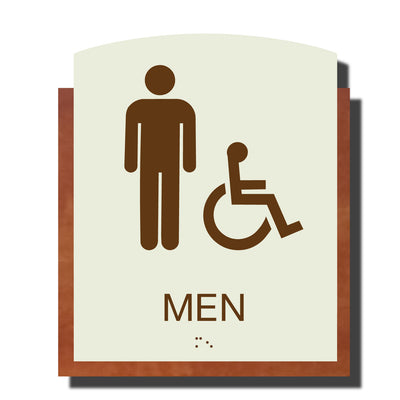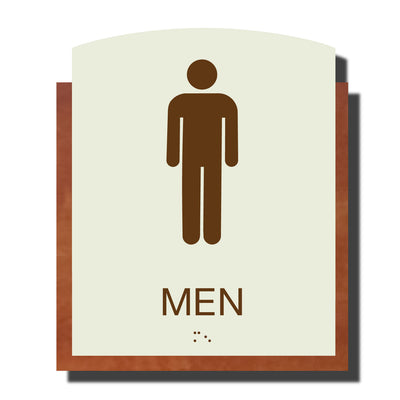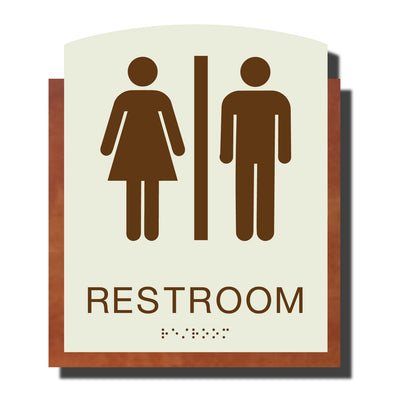ADA Guidelines for compliance!
Posted by Kelly Brewster on
Since 1992, accessible signage has been a requirement in the United States under the Americans with Disabilities Act (ADA). ADA guidelines are intended to remove barriers and make facilities accessible to all people with disabilities.
All public facilities must take steps to comply with ADA guidelines. ADA signs fall into two categories: Signs that must have tactile copy and braille and signs that do not need the tactile/braille but must meet design guidelines and visual copy.
When determining signage for a facility, a general rule of thumb is - if a room has an entry door, an ADA compliant sign with tactile lettering and braille should identify that room or space. Any permanent rooms that have permanent fixtures which are not likely to change require ADA compliant tactile and braille signs. Therefore these rooms are labeled by room names and not just room numbers. Examples are cafeterias, electrical rooms, and restrooms. If a room is considered permanent but can change its function easily, they may be labeled numerically with ADA room number signs. Great examples of these are class rooms, and some offices.
Signs providing direction or information about interior rooms or spaces must meet the ADA visual guidelines but are not required to be have tactile copy or braille. Signs listing rules of conduct, evacuation instructions, exit route maps, and directional signs all fall into this category.


The baseline of the tactile characters shall be mounted between 48" at the lowest point to 60" at the highest point above the adjacent floor. This allows signs of different sizes to be mounted on the same visual plane.
Position sign to be a minimum of 9" from edge of door to center of the sign.

Single Doors - Install latch side of door
Double Doors (both active) - Install to the right of the right handed door
Double Doors (one active) - Install on the inactive door a minimum of 9" from the center of the sign to the meeting edge of the door.

Single in swinging doors may have the signs mounted to the door itself if these three criteria are met. The door closes automatically, the sign is mounted on the push side of the door and the door does not have a hold open device. The sign is installed in the center of the door at a max of 48" to the tactile and at 60" to the highest point. This type of installation is common for kitchen and restroom doors.

You can review the guidelines as of March 15, 2015 at www.ada.gov - Chapter 7, section 703 of the ADA code related to signs.
Visit our website for more information or to order your ADA Signs www.napADAsigns.com
Share this post
- Tags: ADA, ADA Restroom Signs, ADA Room Identification Signs, ADA Room Name Signs, ADA Room Number Signs, Braille, Braille Restroom Signs, Compliant Restroom Signs, interior signs, Made in the USA, Standard ADA Signs, tactile signs, UV Printing

